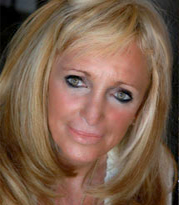Last week I started the series on Control Issues. Unfortunately, most of the article did not get published and I did not realize it. Interestingly, the topic was on control. My friend Cindy said, “Well at least you don’t have control issues”!
 We all have a need to take control over our life. If we don’t, someone else does. There are aspects of our life that are not in our control, but we can control how we approach the problem. Even a young child learns quickly to manipulate to gain control of their wants and desires. What parent hasn’t held their breath with a child’s temper tantrum? The child needs to learn an appropriate way to express that desire, and the parent decides if the desire should and can be fulfilled. The experience that we have as a child can determine and influence our behavior from that point on. There are people who do not learn the healthy way to discern power and healthy control over their lives.
We need to get our needs met. We need to be recognized. We need to have a healthy self-esteem. We need to be free to express ourselves and feel safe. We need to have partnerships that are “give and take” and not one-sided. That is why it is called partnership. These needs may seem obvious, but for many, this is not their reality. The more anxiety we have in our lives, the more the sense to control. The more exaggerated it is in our mind, the more desperate the need to control becomes. Many of these defense mechanisms start in childhood and continue into adulthood.
The Selfish or Self-Centered:
The selfish person acts in their own interest. They think in ways of their own pleasure, and well-being, with little regard to others. The self-centered person sees themselves as the focal point, and the world is centered around them. The Selfish may focus more on themselves then on others. The self–centered and selfish do not always take time to understand, or look at the other person’s point–of–view or feelings. They may be very concerned with their image and material things. While they are easy to find, they are not always easy to spot. The selfish and self-centered are often very personable and successful. After a time, you may realize that they are only concerned in getting their needs met. They are often partners with those who take care of others and not themselves. Some of the selfish and self-centered can be intolerant, reckless and rude. They are the “world” and everything revolves around them.
The problem you may have is that you might be tempted to give up on yourself and not get your needs met.
The Control Freak:
The Control Freak is fueled by anxiety. They have a severe need to control themselves and others, in order to control their environment. Indirectly, they send a message that you are incompetent, and can not be trusted on your own. Their purpose is to defend themselves against the deep anxiety they feel. It’s a “management tool”. Controlling others gives them a temporary peace of mind. It is not real because it does not solve the problem, but makes problems for those they are trying to control.
The control freak will induce fear by the suggestion of loss. If you don’t do what they want, then something really bad is going to happen. They know best! They must assert themselves to feel in control and, if they can not achieve the control, they may become agitated, angry depressed, overwhelmed and panicky.
According to Thomas Shumacker, PSY DRCSW., the control freak will insist on having their own way, or else there will be consequences to pay. They have a set agenda. They often have traits of perfectionism, orderliness, phobias, and an inability for others to see their flaws. They are terrified of being vulnerable. It gives them a sense of order. The control freak is often critical of themselves and others. Decisions all have to go through the “controllers.” The control freak creates someone who will be addicted to them, and puts others in a position of walking on “eggshells,” assuring you that they have your best interest at heart.
If you have a Control Freak in your life, you must learn to set boundaries and take responsibility for your decisions. If it’s a parent /child relationship, then the control freak is not doing the child any favors by not empowering them to make good choices and to become strong. Perhaps, waiting until you are asked for your opinion is a good idea. Having respect for others is important. Dealing with your own anxiety and fears without imposing them on to others is important. Control freaks are not easy to live with, or to be around, but their hearts are usually good, even if mislead.
Next week, I will cover the more dangerous kinds of control disorders.
Have a peaceful and restful week.
You can contact Nancy at: [email protected]
We all have a need to take control over our life. If we don’t, someone else does. There are aspects of our life that are not in our control, but we can control how we approach the problem. Even a young child learns quickly to manipulate to gain control of their wants and desires. What parent hasn’t held their breath with a child’s temper tantrum? The child needs to learn an appropriate way to express that desire, and the parent decides if the desire should and can be fulfilled. The experience that we have as a child can determine and influence our behavior from that point on. There are people who do not learn the healthy way to discern power and healthy control over their lives.
We need to get our needs met. We need to be recognized. We need to have a healthy self-esteem. We need to be free to express ourselves and feel safe. We need to have partnerships that are “give and take” and not one-sided. That is why it is called partnership. These needs may seem obvious, but for many, this is not their reality. The more anxiety we have in our lives, the more the sense to control. The more exaggerated it is in our mind, the more desperate the need to control becomes. Many of these defense mechanisms start in childhood and continue into adulthood.
The Selfish or Self-Centered:
The selfish person acts in their own interest. They think in ways of their own pleasure, and well-being, with little regard to others. The self-centered person sees themselves as the focal point, and the world is centered around them. The Selfish may focus more on themselves then on others. The self–centered and selfish do not always take time to understand, or look at the other person’s point–of–view or feelings. They may be very concerned with their image and material things. While they are easy to find, they are not always easy to spot. The selfish and self-centered are often very personable and successful. After a time, you may realize that they are only concerned in getting their needs met. They are often partners with those who take care of others and not themselves. Some of the selfish and self-centered can be intolerant, reckless and rude. They are the “world” and everything revolves around them.
The problem you may have is that you might be tempted to give up on yourself and not get your needs met.
The Control Freak:
The Control Freak is fueled by anxiety. They have a severe need to control themselves and others, in order to control their environment. Indirectly, they send a message that you are incompetent, and can not be trusted on your own. Their purpose is to defend themselves against the deep anxiety they feel. It’s a “management tool”. Controlling others gives them a temporary peace of mind. It is not real because it does not solve the problem, but makes problems for those they are trying to control.
The control freak will induce fear by the suggestion of loss. If you don’t do what they want, then something really bad is going to happen. They know best! They must assert themselves to feel in control and, if they can not achieve the control, they may become agitated, angry depressed, overwhelmed and panicky.
According to Thomas Shumacker, PSY DRCSW., the control freak will insist on having their own way, or else there will be consequences to pay. They have a set agenda. They often have traits of perfectionism, orderliness, phobias, and an inability for others to see their flaws. They are terrified of being vulnerable. It gives them a sense of order. The control freak is often critical of themselves and others. Decisions all have to go through the “controllers.” The control freak creates someone who will be addicted to them, and puts others in a position of walking on “eggshells,” assuring you that they have your best interest at heart.
If you have a Control Freak in your life, you must learn to set boundaries and take responsibility for your decisions. If it’s a parent /child relationship, then the control freak is not doing the child any favors by not empowering them to make good choices and to become strong. Perhaps, waiting until you are asked for your opinion is a good idea. Having respect for others is important. Dealing with your own anxiety and fears without imposing them on to others is important. Control freaks are not easy to live with, or to be around, but their hearts are usually good, even if mislead.
Next week, I will cover the more dangerous kinds of control disorders.
Have a peaceful and restful week.
You can contact Nancy at: [email protected]








I really think your columns are getting better and better, and I am very proud of you…
What we do is in direct response to how we veiw the world. Someone out of control reacts not acts. We must find a way to be in the control of the Self acting through us, then we will find things working themselves out in the way for our highest good. When we react we are no longer in control and some people then go to extreme lenghts to gain control back again, and the cycle goes on.